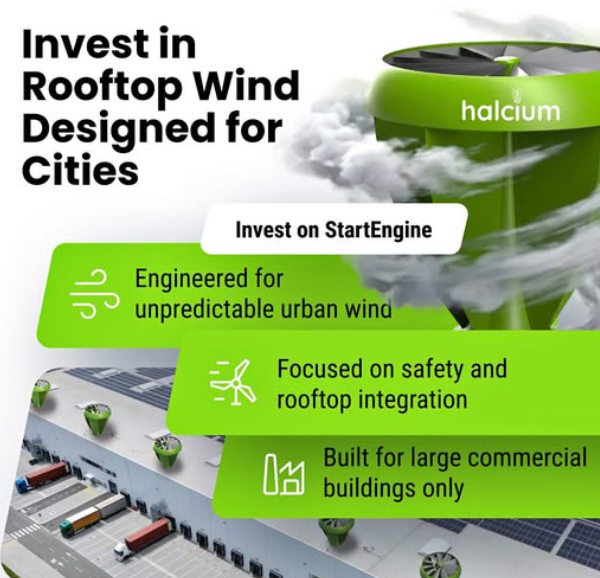Under state law, every three years, Georgia Power must show government regulators at the Georgia Public Service Commission (PSC) its plan to meet electricity demand over the next 20 years. The Commission then must either approve, deny, or amend what is typically a multi-billion-dollar plan that ultimately shows up on your electric bill. Georgia Power’s profits depend on the amount of spending approved in the plan. This year, the review is particularly important because customer bills have already skyrocketed due to two new nuclear plants and high fossil fuel prices.
In its new plan this year, Georgia Power told state regulators that its customers would need a 50% increase in power in just six years, requiring a historically massive buildout of new power plants. For the last fifteen years, despite economic and population growth, most utilities around the country have seen slow or flat demand growth because appliances have become more efficient and now use less energy.
In a hearing to review the plan, multiple experts testified that Georgia Power’s forecast is highly unlikely, even with expected growth in huge new computer data centers. Why is this so important? Because if the Commission approves the plan and the projected new demand doesn’t show up exactly as Georgia Power expects, existing customers will have to pay for billions of dollars of unneeded power plants.
Huge Projected Computer Data Center Expansion Would Increase Fossil Fuel Usage
In order to power the projected electricity demand from huge new computer data centers, Georgia Power proposes to keep its old, inefficient coal-fired power plants (over 4,000 MW of coal-fired capacity) operating through the mid-2030s, when some will be over 60 years old. These plants have emitted an average of 10 million metric tons of carbon dioxide per year over the past few years. In previous Georgia Power resource plans, these plants were going to retire to reduce costs and health impacts.
Georgia Power also proposes to double down on building many new gas-fired power plants (8,000-9,000 MW of gas-fired capacity) that would make the state’s economy fundamentally dependent for another fifty years on out-of-state oil and gas drilling. We estimate that the new gas power plants alone are likely to emit over 16 million metric tons of carbon dioxide emissions per year for decades.
The coal and gas power plants would be by far the largest source of air pollution in the state, spewing tiny, toxic particles that cause heart attacks, asthma, and climate change.
Experts Decry High Electricity Demand Forecast
Seven highly qualified experts hired by different interests disagreed with Georgia Power’s assumptions around demand forecast driven by data center expansion, and none endorsed them. For instance, a national electric reliability expert hired by SACE, NRDC, and Sierra Club testified that Georgia Power’s forecast was “malpractice.” Even the PSC’s own staff poked holes in Georgia Power’s demand forecast.
Expert witnesses Stenclik, Richwine, and Goulding; sponsored by SACE, NRDC, and Sierra Club:
Here is a list of the witness panels that had broad or specific issues with the demand forecast, and timestamps for the hearing video so you can listen to their critiques yourself.
- PSC Staff Witnesses Trokey, Pol, and Dugan: Day 1 0:58-2:39
- PSC Staff witnesses Sandonato, Wellborn, Hayet, and Newsome: Day 1 3:30-5:39
- Expert witness Roumpani; sponsored by Georgia Conservation Voters Education Fund; Day 2 0:18-0:57
- Expert witnesses Hotaling, Patel, Sherwood; sponsored by GIPL and Southface; Day 3 0:51-2:12
- Expert witnesses Stenclik, Richwine, and Goulding; sponsored by SACE, NRDC, and Sierra Club; Day 3 2:14-3:43
Next in the process, Georgia Power will file rebuttal testimony and have a hearing for that rebuttal. Intervenors and Georgia Power will then file final briefs, and the Georgia PSC will decide what to do with this IRP in July. The PSC is an elected body that oversees the work of utilities in the state. Georgia Power, which generates over $7 billion in revenue annually, is the only electric utility regulated by the PSC in Georgia.
The post Data Center Load Uncertainty Dominates Georgia Power IRP Hearing appeared first on SACE | Southern Alliance for Clean Energy.
Data Center Load Uncertainty Dominates Georgia Power IRP Hearing
Renewable Energy
Rooftop Wind
 My doctor, who knows that I understand physics and renewable energy in particular, asked me today what I thought about wind turbines on boats.
My doctor, who knows that I understand physics and renewable energy in particular, asked me today what I thought about wind turbines on boats.
I explained that, since boats need their own ways to generate electricity, what is called “small wind” may make sense. Most ships have diesel-powered generators, and that’s an option for smaller craft as well, and solar is not an attractive option because of the small area.
Doctors generally don’t have time to kill, but he asked me further about small wind, to which I explained:
Because the area of a circle is proportional to the square of the radius, big is better. If you can build a turbine with a radius 100 times larger than a small one, you’re going to generate 10,000 time more power.
Because the power generated by a turbine is proportional to the cube of the wind’s velocity, if you can site a turbine in wind conditions that are 10 times those on your rooftop, with trees and other buildings slowing the wind down, you’re going to generate 1000 times more power.
So, as usual, the answer resides in physics and math. 1000 times 10,000 is 10 million, which is why we see huge turbines on structures that lift huge turbines high above the ground, and it’s why the small wind industry has essentially disappeared.
If you don’t understand elementary school math and high school science, and you have money to burn, the investment offered at left may be right for you.
Renewable Energy
Fox News and its Effects on American Civilization
 It’s interesting that there is no Fox News (or equivalent) in Canada.
It’s interesting that there is no Fox News (or equivalent) in Canada.
The Canadians have protections of free speech that are very similar to ours in the States, and, like the U.S., these rights are not absolute. One difference is that Canada prohibits gross misrepresentation, which, in this case means that presenting opinions and calling it “news” is against the law. Lies are fine; calling them “news” is not.
A possible name for a show with the same content might be “Conservative Viewpoints” or “The Way the Right Wing Sees the World.”
Where Canada protects its people from malicious bullshit, in America we say, “Money talks.”
Renewable Energy
Apathy in the Midst of Treason
 Former Labor Secretary Robert Reich makes an excellent point at left.
Former Labor Secretary Robert Reich makes an excellent point at left.
The constant onslaught of distractions coming out of Trump’s mouth is calculated make us give up striving for truth, honesty, and environmental responsibility.
We mustn’t quit.
-
Greenhouse Gases7 months ago
Guest post: Why China is still building new coal – and when it might stop
-
Climate Change7 months ago
Guest post: Why China is still building new coal – and when it might stop
-

 Greenhouse Gases2 years ago
Greenhouse Gases2 years ago嘉宾来稿:满足中国增长的用电需求 光伏加储能“比新建煤电更实惠”
-
Climate Change2 years ago
Bill Discounting Climate Change in Florida’s Energy Policy Awaits DeSantis’ Approval
-
Climate Change2 years ago
Spanish-language misinformation on renewable energy spreads online, report shows
-

 Climate Change2 years ago
Climate Change2 years ago嘉宾来稿:满足中国增长的用电需求 光伏加储能“比新建煤电更实惠”
-
Climate Change Videos2 years ago
The toxic gas flares fuelling Nigeria’s climate change – BBC News
-

 Carbon Footprint2 years ago
Carbon Footprint2 years agoUS SEC’s Climate Disclosure Rules Spur Renewed Interest in Carbon Credits



